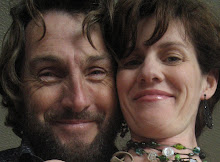 Well, it's on! Our Prime Minister has set the date for the 2010 Election, and for me, that means the start of an exciting journey along the campaign trail. Reflecting on the days ahead, I keep coming back to one of the things that attracted me to The Australian Greens in the first place. It is their belief in Grassroots participatory democracy.
Well, it's on! Our Prime Minister has set the date for the 2010 Election, and for me, that means the start of an exciting journey along the campaign trail. Reflecting on the days ahead, I keep coming back to one of the things that attracted me to The Australian Greens in the first place. It is their belief in Grassroots participatory democracy.Real progress comes when enough people believe it is possible to make a difference and decide to do something about it. All Greens members and supporters are driven by the desire to work towards a better Australia. In contrast to the two major parties, which are run by executives in head office, the Greens involve members in key decisions and our campaigns are powered by thousands of ordinary people volunteering their time, skills and support.In our day to day struggle to make ends meet, when do we ever stop to think about whether we are actually involved in the decisions our country's leaders make? We all have this implicit trust that their decisions are for the benefit of everyone, not what's popular, or worse, for the benefit of an elite few. Raj Patel, in his latest book, 'The Value of Nothing' explores this concept and asserts that with governments these days being co-opted by corporations, it's now time for citizens to reclaim 'the commons'.
Traditionally, the Commons were described as a sort of 'right' to access for day to day survival of every human being. That is, access to water, food, fuel, and medicinal plants - the poorest people's life support system. But it was also more, it was a process of freedom as well, "...in which people fought for the right to shape the terms on which they could share the commons."
Unfortunately, the Commons have been 'enclosed' by the rich, multinational corporations, and now is the moment for dispossessed groups and disempowered citizens to reinvent the Commons.
So, today I did my bit to reclaim the Commons, by participating in a local permablitz day. Participatory democracy is one such process, as demonstrated beautifully today by thirty strangers getting together in a neighbour's yard and creating a permaculture food garden. This is hardly an act of radical protest. Rather, a fun, educational, heart-warming step forward to create individual bonds and the collective strength to become resilient, and determine our own future.
What does gardening have to do with participatory democracy? Nothing, really. Not at first glance, anyway. But if you ask those strangers how they felt at the end of the day, the overwhelming response was one of connectedness, self-organising without red tape, and no need to listen to 'populist' politics in determining what they planted, where they planted it, and who was going to eat it! Essentially, it's an act of establishing food sovereignty for our community, and this sets the basis for change, wider change where the idea of "a right to have rights" is being used to reshape our urban space, and reclaim the terrain on which Kurilpa lives.
Through these participatory processes The Greens and in particular, the Transition Town movement are at the cutting edge of creating new ways to value the world without owning it.

No comments:
Post a Comment